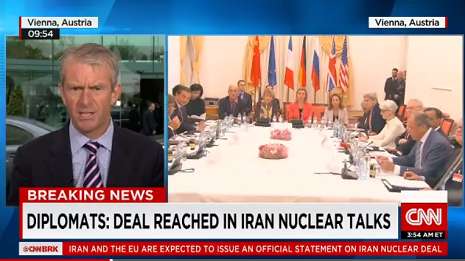Representatives of Iran, the United States and the other nations involved in the marathon talks were holding a final meeting in Vienna on Tuesday.
Speaking ahead of the session, Iranian Foreign Minister Mohammad Javad Zarif called the deal a "historic moment," although he cautioned that it was "not perfect."
"It`s a good day for diplomacy, it`s a good day for compromise, it`s a good day for a new beginning between Iran -- a pivotal state in the Middle East -- and the United States," said Fawaz Gerges, professor of Middle East studies at The London School of Economics.
Leaders of the Western nations involved in the talks have backed a deal as the best way to stop Iran from becoming a nuclear power.
Iran, meanwhile, has been eager to get rid of international economic sanctions that have been squeezing its economy.
The essential idea behind the deal is that in exchange for limits on its nuclear activities, Iran would get relief from sanctions while being allowed to continue its atomic program for peaceful purposes.
After news of the deal emerged, Yukiya Amano, the chief of the International Atomic Energy Agency, said he had signed a "roadmap" with the Iranian government "for the clarification of past and present outstanding issues regarding Iran`s nuclear program."
More about:















































